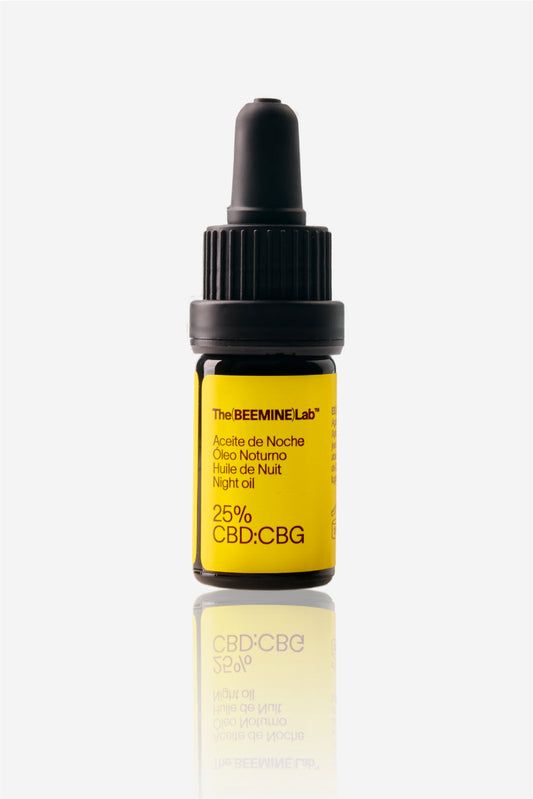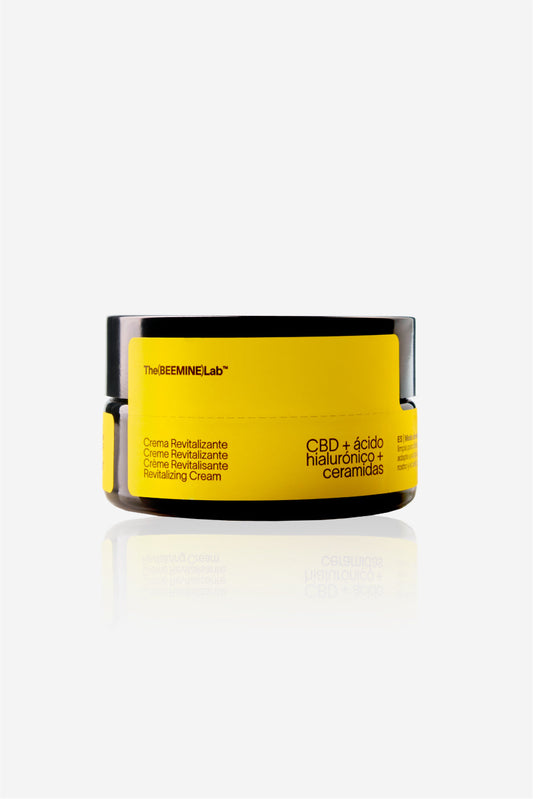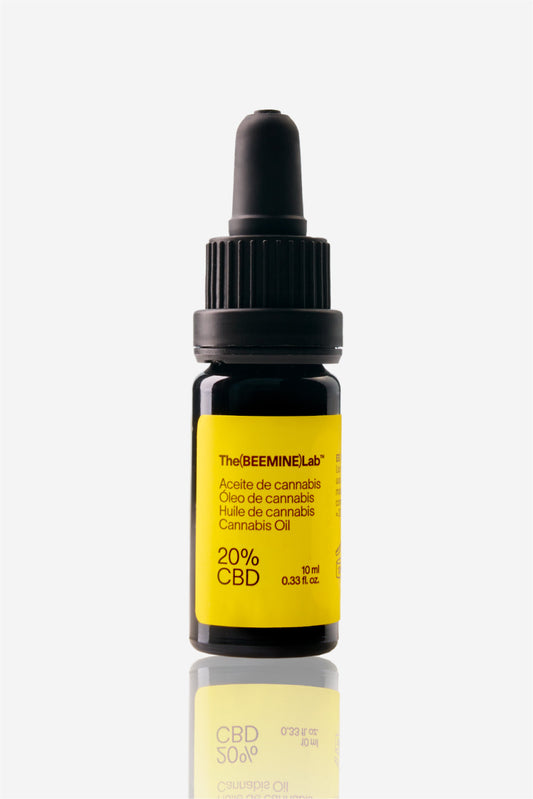The phases of sleep and restful sleep
Sleep is the most frequent activity of every human being, and is of fundamental importance for the health of our body. As we have learned in the article on “ how to take CBD to sleep” , sleep disorders are very common and can have negative consequences on many metabolic functions, as well as causing different degrees of incapacity at a personal and professional level. (1)The phases of sleep
Sleep is made up of several cycles of approximately 1:30-2 hours in length, which are repeated 5-6 times each night: for this reason it is advisable to have 7-8 hours to sleep, since a shorter duration would lead to a reduction in the number of cycles and/or the possibility of interrupting one, negatively influencing the quality of sleep and rest. Each sleep cycle is made up of 4 phases , of which only the last represents REM sleep (rapid eye movements).- Phase 1 NREM : This is the light sleep stage, in which one enters a state between sleep and wakefulness. It lasts a few minutes, during which the body relaxes by slowing down the heartbeat, breathing rate, eye movements and brain waves.
- Phase 2 NREM : This is the stage in which the sleep state begins, disconnecting from the outside world and further slowing down vital functions, which is why body temperature drops.
- Phase 3 NREM : This is the stage of deep sleep, in which the body reduces its vital functions to a minimum and rests from daily activity, recharging its energy and regenerating its tissues and functions. This phase is essential for restorative sleep and for maintaining good health, as it is the moment in which the body initiates the metabolic and hormonal changes necessary for the development of the organism.
- Phase 4 REM : This is the stage of processing information acquired during the day and consolidating memories, which is why most dreams occur. During this phase, the body and brain are active almost as in a waking state, with increased heart rate, breathing rate, brain waves and eye movements, although temporary paralysis is observed to prevent muscle movements during dreams.

How CBD can help you get better sleep
The rhythm of sleep and wakefulness is regulated by two biological mechanisms:- Circadian rhythms : known as the biological clock, coordinate the temporal variables of sleep (when to sleep and when to wake) with the environment and regulate metabolic functions and body temperature.
- Homeostasis mechanisms : coordinate the qualitative variables of sleep (necessary quality and duration), influencing the quantity and depth of sleep according to the events that have occurred during the waking state.
- Physically relaxing : CBD has a hypotensive effect that facilitates muscle and nervous system relaxation.
- Mentally relaxing : CBD has a hypnotic and anxiolytic effect, thanks to the modulation of the serotonergic system
- Modulation of the Endocannabinoid System : CBD increases the levels of Anandamide , which influences the state of sleep and also helps regulate the hormonal system and the regulation of psycho-physical stress.
References and Studies on CBD and Insomnia
Studies show that among the vast majority of therapeutic Cannabis users, one of the main reasons for its use is to alleviate sleep problems or improve its quality (4-6). There are studies that have shown beneficial effects of CBD on the quantity and quality of sleep (14), increasing its duration and reducing night awakenings, in addition to being able to alleviate behavioral disorders during REM sleep (3-13). Other studies have observed an improvement in sleep problems related to phase 3 NREM , resulting from an inhibitory effect on FAAH enzymes (Anandamide degradation enzymes), which represents one of the effects of CBD on the Endocannabinoid System.(6) In clinical trials of Sativex, a balanced combination of THC and CBD has been found to provide significant improvements in sleep quality (5), and some researchers hypothesize that CBD may improve sleep problems when accompanied by a small proportion of THC, thanks to the synergistic effect between the two compounds. In general, while the sporadic use of larger amounts of THC may facilitate a state of relaxation and drowsiness, its continued use may negatively influence sleep quality (7-12). There are clinical trials that are showing very promising results using CBD products alone or accompanied by other cannabinoids such as THC and CBN. (6)How to take CBD to facilitate restful sleep
To alleviate sleep problems and improve its restorative effect, it is essential to take CBD internally, especially through sublingual use (not regulated in Spain). In general, it is advisable to start with a low or medium concentration CBD oil (5%-10%), initially using minimal doses and gradually increasing the number of drops until the effect appears. If you want to choose this route, it is advisable to be able to receive advice and follow-up from a specialized health professional.Other tips to facilitate a restful sleep
The quality of sleep can be influenced both positively and negatively by some daily habits, therefore there are some good practices that help facilitate restful sleep, for example:- Eating habits : factors that have a negative influence can include eating late, eating too much and/or eating heavy or high-calorie foods. It is advisable to eat something light for dinner, such as vegetables, leaving at least 2 hours before going to bed.
- Taking stimulants such as coffee, alcohol or tobacco can make it difficult to sleep, so you should try to avoid using them at night.
- Nighttime activities that involve mental and physical stimulation can make it difficult to relax and sleep, so it is advisable to stop any stimulating activity one hour before bedtime.
- Electronic screens during the night can disrupt levels of melatonin, the hormone that induces natural sleep, so avoid using electronic devices in the last 1-2 hours before bedtime.
- It is advisable to go to bed and get up at regular times , maintaining a routine.
- The environment : It is advisable to sleep in a dark and quiet environment, since bright or noisy places can negatively influence the restorative effect of sleep.
Final Conclusions on CBD and Insomnia
Thanks to its relaxing and modulating effect on the Endocannabinoid System, CBD can represent a very valuable therapeutic tool both to deal with sleep-related problems and to optimize and facilitate its regenerative and repairing effect.Is CBD safe? Precautions
CBD is a very safe substance even when used in large quantities, however, care must be taken when taking medications or if you suffer from heart or blood pressure problems. For this reason, in these cases it is always advisable to contact a health professional.Possible side effects
Adverse effects are usually mild to moderate in intensity and may include tiredness, drowsiness, dry mouth, dizziness and decreased appetite. Literature:- https://espanol.nichd.nih.gov/salud/temas/sleep/informacion/sucede
- https://www.ninds.nih.gov/health-information/patient-caregiver-education/brain-basics-understanding-sleep
- https://www.projectcbd.org/medicine/cannabis-sleep-disturbances
- Babson, KA, Bonn-Miller, MO (2014) Sleep Disturbances: Implications for Cannabis Use, Cannabis Use Cessation, and Cannabis Use Treatment. Curr Addict Rep 1, 109–114
- Russo, E.B., Guy, G.W., & Robson, P.J. (2007). Cannabis, pain, and sleep: lessons from therapeutic clinical trials of Sativex, a cannabis-based medicine. Chemistry & biodiversity , 4 (8), 1729–1743.
- Suraev, AS, Marshall, NS, Vandrey, R., McCartney, D., Benson, MJ, McGregor, IS, Grunstein, RR, & Hoyos, CM (2020). Cannabinoid therapies in the management of sleep disorders: A systematic review of preclinical and clinical studies. Sleep medicine reviews , 53 , 101339.
- Kesner, A.J., & Lovinger, D.M. (2020). Cannabinoids, Endocannabinoids and Sleep. Frontiers in molecular neuroscience , 13 , 125
- Pava, M.J., Makriyannis, A., & Lovinger, D.M. (2016). Endocannabinoid Signaling Regulates Sleep Stability. PloS one , 11 (3), e0152473
- Méndez-Díaz, M., Ruiz-Contreras, A.E., Cortés-Morelos, J., & Prospéro-García, O. (2021). Cannabinoids and Sleep/Wake Control. Advances in experimental medicine and biology , 1297 , 83–95
- Hanlon EC (2020). Impact of circadian rhythmicity and sleep restriction on circulating endocannabinoid (eCB) N-arachidonoylethanolamine (anandamide). Psychoneuroendocrinology , 111 , 104471
- Prospero-Garcia, O., Amancio-Belmont, O., Becerril Melendez, A. L., Ruiz-Contreras, A. E., & Mendez-Diaz, M. (2016). Endocannabinoids and sleep. Neuroscience and biobehavioral reviews , 71 , 671–679.
- Babson, K.A., Sottile, J., & Morabito, D. (2017). Cannabis, Cannabinoids, and Sleep: a Review of the Literature. Current psychiatry reports , 19 (4), 23
- de Almeida, C., Brito, M., Bosaipo, NB, Pimentel, AV, Tumas, V., Zuardi, AW, Crippa, J., Hallak, J., & Eckeli, AL (2021). Cannabidiol for Rapid Eye Movement Sleep Behavior Disorder. Movement disorders: official journal of the Movement Disorder Society , 36 (7), 1711–1715.
- Shannon, S., Lewis, N., Lee, H., & Hughes, S. (2019). Cannabidiol in Anxiety and Sleep: A Large Case Series. The Permanent journal , 23 , 18–041. https://doi.org/10.7812/TPP/18-041







